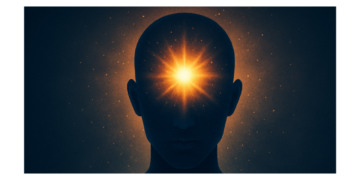The Forgotten Gland: Why Your Pineal Might Be More Important Than You Think
Most people never think about it.
Buried deep in your brain, the pineal gland is often overlooked — yet it plays a powerful role in how you sleep, feel, and think.
Some call it the “forgotten gland.” But once you understand what it does, you might wonder why we stopped paying attention to it at all.
What Is the Pineal Gland?
The pineal gland is a small, pinecone-shaped organ located near the center of your brain. It’s often associated with your circadian rhythm, the internal clock that controls your sleep-wake cycle.
Researchers believe it influences:
Sleep patterns via melatonin production
Mood, clarity, and emotional balance
Even spiritual perception and “intuition” in some philosophies
For something so small, its impact may be deeper than most realize.
A Brief History of the Pineal Gland
For centuries, the pineal gland has intrigued both scientists and philosophers:
René Descartes called it the “seat of the soul,” believing it was the center of consciousness.
Ancient cultures viewed it as a mystical “third eye” connected to inner vision and intuition.
In modern times, it has become a focus of both neuroscience and spiritual inquiry — yet still remains poorly understood by the general public.
Its position in the exact center of the brain and its unique structure continue to spark curiosity.
Myths and Misunderstandings
Because of its mysterious nature, the pineal gland has inspired many myths — some grounded in tradition, others more speculative:
Some believe it becomes “calcified” due to modern diets and chemicals. While calcification can occur, its effects are not fully understood.
Others think it holds the key to “higher consciousness,” though scientific evidence on this is limited.
Still others associate it with dream states, lucid dreaming, or even psychic phenomena.
Whether symbolic or biological, the pineal gland continues to bridge science and mystery.
Why It’s Being Forgotten
In modern life, the pineal gland is under constant pressure:
Artificial light exposure disrupts its natural signals
Overstimulated brains struggle to relax at night
Some believe toxins like fluoride or heavy metals may affect its function
Science is still catching up, but one thing is clear:
Most people never stop to think about the systems silently running the show.
Supporting It Naturally
Instead of ignoring it, many are starting to explore ways to nurture the pineal gland with lifestyle shifts:
Limiting blue light before bed
Prioritizing deep, uninterrupted sleep
Avoiding processed foods and toxins
Getting early morning sunlight
Exploring plant-based compounds used in traditional wellness
These small changes may support not only your pineal gland but your overall mental clarity and sense of alignment.
A Natural Formula People Are Talking About
Among those curious about natural support, a formula called Pineal XT has started generating interest.
It blends ingredients often used to promote mental clarity, balance, and rest — without stimulants or synthetic compounds
If you’re exploring natural ways to support your mental clarity and inner balance,
Final Thoughts
The pineal gland may be small, but its influence is anything but.
In a world that constantly pulls your focus outward, it could be worth looking inward — and asking what parts of yourself have been quietly neglected.
Because sometimes, the smallest switches can unlock the biggest shifts.
This article is for informational purposes only and is not intended as medical advice. Always consult a qualified professional before making health-related decisions.


















